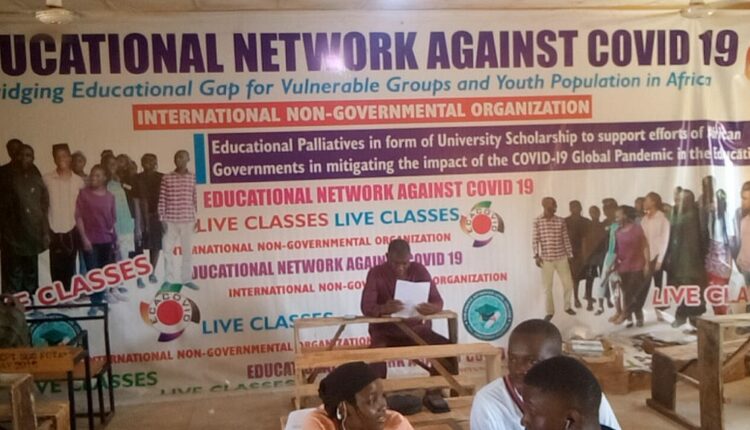
A human rights organisation, Educational Network Against COVID-19, has called for support to register widows, orphans, repented sex workers, victims of domestic violence and youth groups to partake in the West African Senior School Certificate Examination.
The Executive Director of ENACOVID, Dr Ben Onwudinjo, made the call at a press briefing in Abuja on Wednesday on the formal launching of the National Post COVID-19 Educational Response Plan for citizens affected by the COVID-19 pandemic.
Onwudinjo said the Minister of State, FCT, Dr Ramatu Aliyu, approved a Memorandum of Understanding for the NGO, screened and released at least 3000 widows, orphans, repented commercial sex workers, victims of domestic violence and youth groups to train them at no cost to the government or beneficiaries.
“With support from members of the University of Nigeria Alumni Association, Abuja branch, we trained them on different skills which include catering craft, cosmetology, tailoring, driving/mechanics, computer coding, programming, solar power energy, CCTV installation, fashion, interior decoration practicals.
“Successful ones shall write the Federal Ministry of Education organised NABTEB modular examinations by the first quarter of 2023. The entire list of all beneficiaries is unavailable, due to privacy issues.
“To register the remaining 2,900 candidates for the WAEC 2023 January/February exam, we need public support to the tune of N52,200,000 since WAEC charges N18,000 per candidate.
“We use this medium to urge members of the public to help us call on international communities, NGOs, faith-based organisations, philanthropists, international NGOs and the public to support us to enable us to pay the WAEC fees to the beneficiaries between now and December 2022.”
Onwudinjo said interested individuals and organisations can reach the NGO for support towards actualising its goals.
He also noted that there are plans to extend the services to other states.
“We require educational facilities across the states to enable us to train all interested vulnerable groups and register them for WAEC/NECO/NABTEB at no cost to them and to the state governments since the funding comes from our incomes, crowd-funding and support from local and international services. We are now awaiting invitations from all state governments for our action,” he added.




